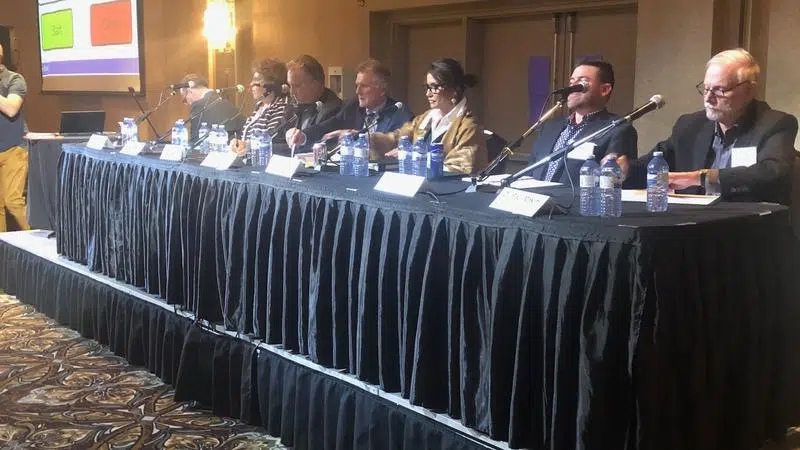
Emotional presentations at first Lethbridge Supervised Consumption Site Review meeting
LETHBRIDGE, AB – Hundreds of people came to the Coast Hotel in Lethbridge, to listen, find out more information, or to have their say on the city’s Supervised Consumption Site.
 About 200 people turned out for the meeting
About 200 people turned out for the meetingThe meeting began at 5 p.m. but just prior to that, a small protest, made up of a few dozen or so residents opposed to the SCS, held up signs along Mayor Magrath Drive.
A panel, appointed by the provincial government, made up of seven members ranging from doctors, harm reduction specialists, a behavioral scientist, an economist, a mother directly affected by the opioid crisis, Edmonton’s former police chief, and a former RCMP officer are getting feedback as part of a province-wide review. Their mandate, as they travel across the province over the next several weeks, is to evaluate the social and economic impacts of the current and proposed supervised consumption sites.



